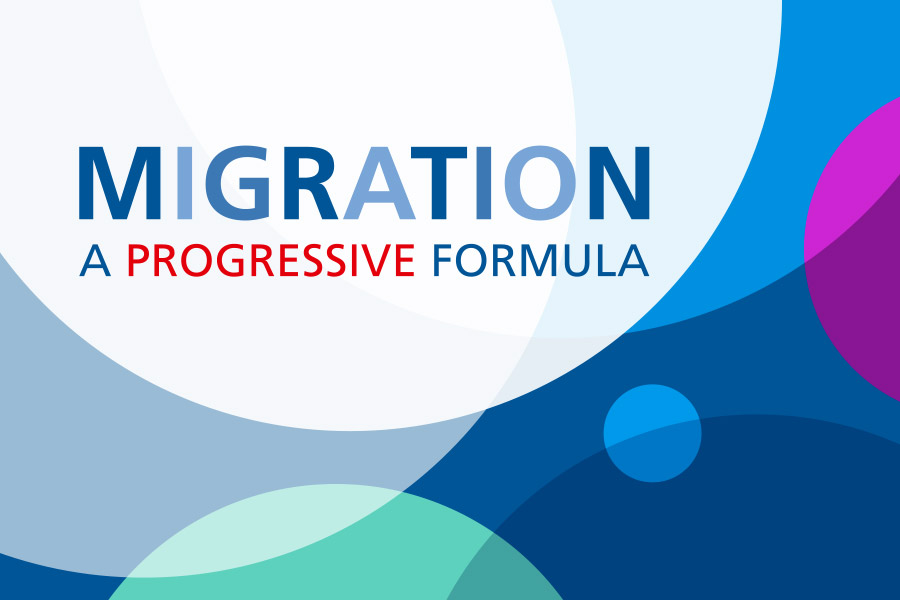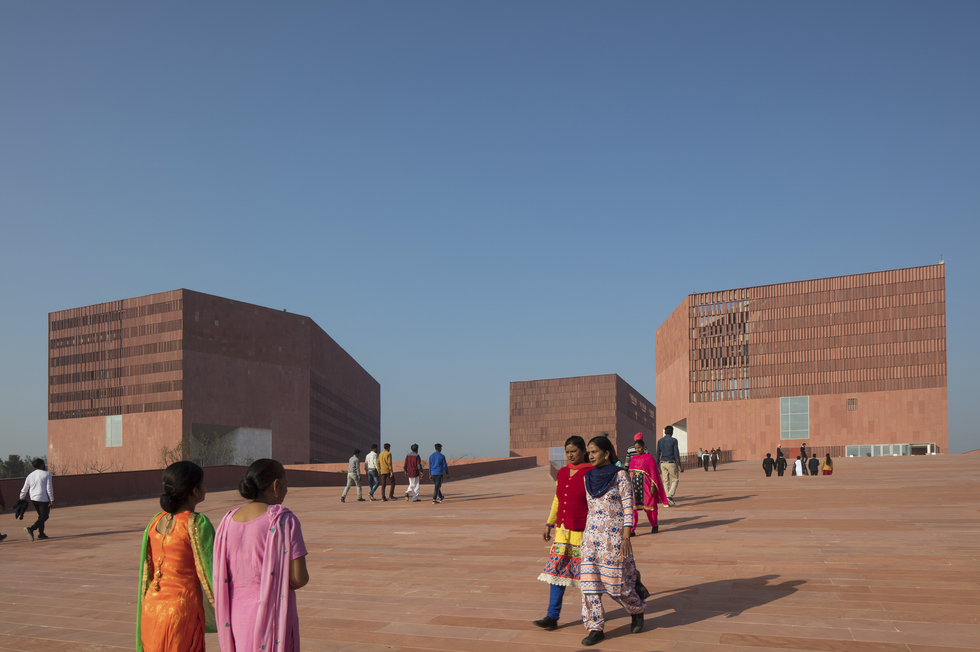The Feedback Trap

In the state elections in Thuringia and Saxony, the Alternative for Germany (AfD) achieved historically high results. The latest European Parliament elections also saw right-wing political forces, including those at the extreme end of the spectrum, perform extraordinarily well in many countries. A frequently cited reason for their success was their anti-immigration and anti-multiculturalism stance.
In the run-up to the elections, fears and concerns about migration dominated political and media debates. In Germany, it was the refugee crisis , the threat posed by Islamic extremism and growing anti-Semitism that were the focus of these debates. According to surveys, immigration and asylum were the 'most important issue' for around a third of all voters in both Thuringia and Saxony. According to the Deutschlandtrend survey conducted by German broadcaster ARD, the most pressing issue in the run-up to the elections was asylum policy.
Self-reinforcing feedback loop
Large inflows of migrants and refugees can lead to conflicts in the societies affected. For many, these conflicts are a cause for concern. This is not new. Nor is it surprising.
However, the countless studies that have analysed media reporting on the issue of refugees and migrants over the years have found that the tone adopted in media and political debates only reflects reality to a certain extent. (Stiftung Mercator "Befunde: Die Medienberichterstattung über Flucht und Migration 2016-2020", Otto-Brenner-Stiftung: "Stumme Migranten, laute Politik, gespaltene Medien", Mediendienst Integration: "Wie Medien über Messerangriffe berichten") Indeed, according to a recent historical analysis of coverage on the issue, conducted at the University of Lisbon, the importance the public attaches to migration depends far more on how intensively the topic (and the relevant political debates) are discussed and reported.
If, for example, the number of refugees increases, media and politicians alike focus – as we would expect – on problems of reception and accommodation, the Lisbon-based researchers explain. This leads to what are often very lively political debates that are in turn reported on in the media, with statements by politicians, draft legislation and other measures subject to media commentary and analysis. Should the respective measures fail to achieve their objectives, there are recriminations that spark new debates – generating even more coverage on the issue. In the network economy, this is called a feedback effect – a self-reinforcing feedback loop.
Incidentally, this effect can also be observed if the number of refugees falls. At this juncture, it is worth pointing out that in the first six months of 2024, considerably fewer asylum seekers arrived in Germany (and Europe) than in the same period of the previous year. And this is not an isolated case: in the summer of 2018, for instance, the number of media articles on asylum policy tripled – despite the declining refugee numbers. The reason for this? A government debate on refugees being turned back at the German border.
The more we talk about it, the more important the issue become
Taking a historical perspective on reporting also reveals that, with very few exceptions, media reports on migration and asylum focus on sensationalist news topics such as crime, violence, terrorism or social injustice.
It is both the role and the duty of the media to cover these issues. However, much depends on how they go about it, as, with highly emotive issues in particular, feedback effects can occur very quickly.
An analysis conducted by the German Mediendienst Integration(migration media service, MDI) on media coverage of “clan crime”, for instance, showed that, from 2019, there was a rapid increase in reporting on this issue – not because there had been a clear increase in family-based organised crime, but primarily because more articles on the situation had been published - and an increasing number of offences were recorded under the category of 'clan crime'.
Another example: a quick online search for the term “refugee accommodation” reveals that the vast majority of reports on the topic are illustrated with photos of crowded sports halls, tents and other forms of emergency shelter. A nationwide survey by the University of Hildesheim and the MDI, however, found that in May 2024, as little as 35 percent of German municipalities actually put refugees up in emergency accommodation – and just 7 percent in sports halls.
That is not to say that family-based crime is not a threat to security – or that German municipalities do not face challenges finding accommodation for refugees. However, if the coverage on these topics relates primarily to the public’s fears and concerns, this can lead to the impression that politicians and institutions no longer have control over parts of the immigration community – and that, by extension, migration is becoming a threat to social cohesion.
Debates with a decidedly negative tone, in turn, lead to migration increasingly being mentioned in surveys as an issue of concern – as expressly stated in the Lisbon study. The media then report on these polls, confirming the feeling that we are dealing with a serious threat. And this reinforces the feedback effect.
We have learned a lot
It is essential that media professionals recognise these dynamics – and question or counter them. Especially when it comes to issues people are worried about, the following applies: check your facts, avoid generalisations, maintain an objective tone and, if in doubt, consult with experts – from as diverse a pool as possible.
For 12 years now, the MDI has endeavoured to support journalists reporting on migration issues – providing them with facts and figures, and putting experts at their disposal.
Based on this experience, we can safely say: the debate on migration, asylum and integration has made huge progress in Germany. While 14 years ago, the controversial views of former Berlin Senator for Finance Thilo Sarrazin were frequently quoted by the media without comment, these days, fact checks and diverse expert opinions are now part of the journalistic toolkit used by the majority of regional and national editorial offices.
Sweeping assertions about refugees allegedly exploiting the welfare state or criminal migrants purportedly terrorising Germany cities are increasingly being systematically checked using official sources and data as well as qualified appraisals. Even by international standards, the media debate on migration in Germany is significantly less defined by scaremongering and sensationalism than in other parts of Europe – as our partner projects from various European countries confirm.
That said, objective and nuanced reporting on the issue of migration remains as important and as complex as ever. Indeed, this is all the more pertinent at a time when political forces are on the rise that are systematically eroding the pillars of our democratic and open society.
About

Fabio Ghelli is Deputy Editor-in-Chief at the Mediendienst Integration. The MDIis a project of the German Rat für Migration (Council for Migration) – a network of 230 researchers. On its website, the MDI presents the latest facts and figures about migration, integration and asylum. These include over 2,000 dossiers, analyses, investigations and fact sheets on all manner of issues pertaining to the immigration society, from asylum policy to integration into the employment market to Islamic and right-wing extremism. The service also offers press interviews, background briefings and workshops for journalists.
The opinions and statements of the guest author expressed in the article do not necessarily reflect the position of the Friedrich-Ebert-Stiftung.


